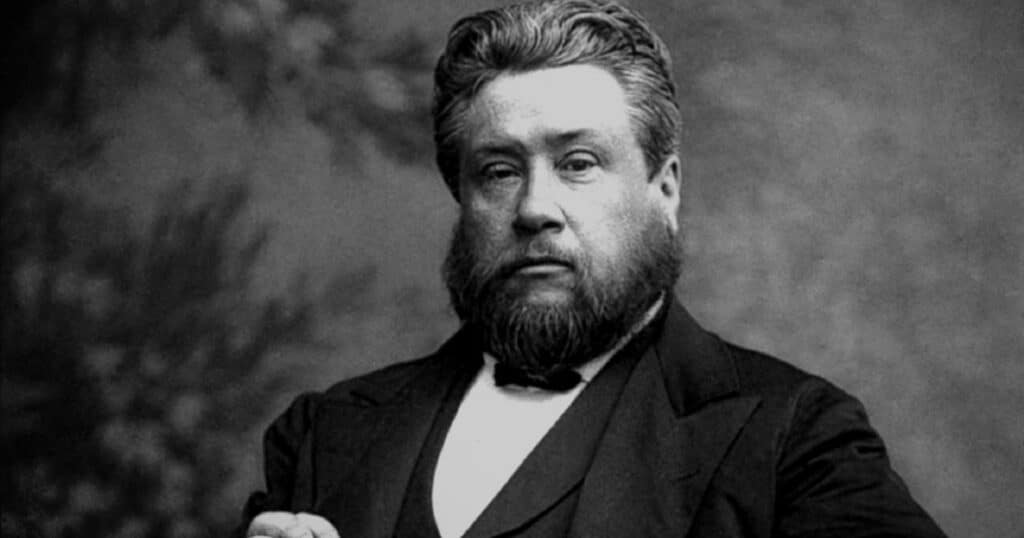On Sunday morning, April 23, 1865, Charles Spurgeon, the “Prince of Preachers,” stood before his massive congregation at the Metropolitan Tabernacle in London and urged members to leave the church. He was not angry with them; he was not having an emotional breakdown; he was not trying to rid the church of wolves. He was asking Spirit-led, born-again Christians to consider devoting themselves to the prosperity of other churches for the advancement of the gospel.
Here is a portion of what he said that day:
“We have never sought to hinder the uprising of other Churches from our midst or in our neighborhood. It is with cheerfulness that we dismiss our twelve’s, our twenties, our fifties, to form other Churches. We encourage our members to leave us to found other Churches; nay, we seek to persuade them to do it. We ask them to scatter throughout the land to become the goodly seed, which God shall bless. I believe that so long as we do this we shall prosper. I have marked other Churches that have adopted the other way, and they have not succeeded.”
This kind of preaching is incomprehensible to many pastors today. After all, the goal for many is to get people to leave their church to come to ours. It’s hard for us to believe that the redistribution of Christians from our congregation to another could result in anything positive. Plus, everyone knows that the pastor who dies with the biggest church wins. Spurgeon, arguably the world’s first megachurch pastor, seemed to have no trouble telling his members to leave to form new churches.
“My brethren, if you can do more good elsewhere than you can do here, for God’s sake, go, and happy shalt I be that you have gone. If you can serve my Master in the little rooms in the neighborhood, if by forming yourselves into smaller churches you can increase the honor of my Master’s name, I shall love you none the less for going, but I shall delight to think that you have Christ’s spirit in you, and can do and dare for his name’s sake. At the present moment we rejoice to know that many a Sunday School in this neighborhood is indebted to the members of this Church for teachers. It is right. We do not want you at home, and are therefore glad to see you at work elsewhere. No matter, so long as Christ is preached, whether you throw your strength into that Church or into this Church. Here, as being members with us, we have the first claim upon you; but when we do not need you by reason of our abundance of men, go and give your strength to any other part of Christ’s Church that may desire you.”
Spurgeon pushed back when others resisted the idea of sending out church members to start new congregations:
“This Church will begin to go rotten at the core the moment we are not working for God with might and main. Sometimes I get a pull at my coattail by very kind, judicious friends, who think I shall ask you to do too much. My brethren are welcome to pull my coattail, but it will come off before I shall stand back for a moment. As long as I live I must serve my Master with my whole soul, and when you think I go too fast, you can stand back if you dare, for mark, you will be responsible to God if you do; you may start back if you will and if you dare, but I must go on, must go, MUST go on, or else you and I that are worthy of the day in which you live will follow me, step by step, in any good project, and though I should seem too rash, you will redeem me from the charge of rashness by the enthusiasm and the earnestness with which you carry out my plans. Here is this great city! Was there ever such spiritual destitution? A million of people who could not go to a place of worship, if they had the heart to go there!”
Spurgeon also asserted that sending out church members did not harm his own congregation, even when new churches were established in his own neighborhood:
“We have undertaken many enterprises for Christ; we hope to undertake a great many more. We have never husbanded our strength; we have undertaken enterprises that were enough to exhaust us, to which we became accustomed in due season, and then we have gone on to something more. We have never sought to hinder the uprising of other Churches from our midst or in our neighborhood. It is with cheerfulness that we dismiss our twelves, our twenties, our fifties, to form other Churches. We encourage our members to leave us to found other Churches; nay, we seek to persuade them to do it. We ask them to scatter throughout the land to become the Godly seed which God shall bless. I believe that so long as we do this we shall prosper. I have marked other Churches that have adopted the other way, and they have not succeeded.
Spurgeon also had a vivid warning for those who resisted sending members on mission: “I have seen that the effect of trying to keep all the blood in the heart is to bring on congestion, and very soon the whole body has been out of health.”
By far, the craziest thing about this sermon is that he actually credits the success of his church to the fact they had liberally and joyfully given their members away to form church planting teams! How different the spiritual landscape of our country would be if pastors and churches were as dedicated to kingdom growth as they are to the growth of their own congregations.
Think of a bathtub drain. Water comes out of the faucet and goes directly down the drain, as long as nothing blocks it. When items block the drain, the flow of water slows and more and more water gathers in the tub. As debris is removed, water begins to flow again.
Churches often think their goal is filling up the tub, so they work to establish leaders and ministries to keep folks attending their churches. Imagine if we stopped trying to gather folks to block the drain and intentionally removed the drain guard, freeing and encouraging them to go serve God wherever He takes them.
Granted, it is entirely possible that, with the drain unblocked, you will have less water in the tub. Yet it’s also quite likely that the water passing through will be much fresher. The same can be said of our churches. We have built our entire church system around gathering people, but the heart of Jesus’ teaching is scattering people.
And this gospel of the kingdom will be proclaimed throughout the whole world as a testimony to all nations, and then the end will come. (Matt. 24:14)
Published March 9, 2022




